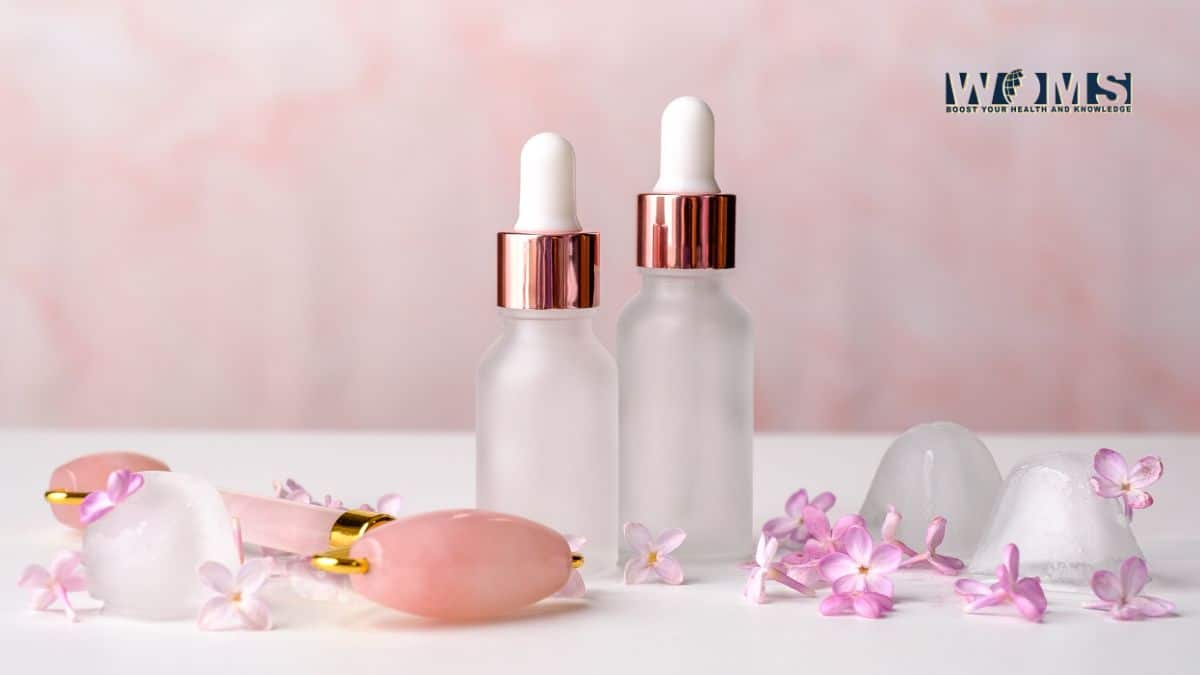Why Should You Include Niacinamide Serum in Your Skin Care Routine

Niacinamide is a skincare ingredient worth considering, and your skin will thank you. It stands out among many other fantastic skincare ingredients, such as retinol and salicylic acid, because of its versatility for almost any skincare concern and skin type. And whether you’re a skincare connoisseur or simply like to be informed about powerful ingredients, you’ll want to learn about all the niacinamide benefits. Are you curious about the benefits of niacinamide serum and how to incorporate it into your skincare routine? Continue reading to learn more about its benefits, how to incorporate it into your skincare routine, and more.
What is Niacinamide?
Niacinamide, also known as nicotinamide, is an essential nutrient in the form of vitamin B-3. A B-3 deficiency can cause skin, kidney, and brain problems. Niacinamide supplementation can help prevent B-3 deficiency. It is a water-soluble vitamin that works with your skin’s natural substances to visibly reduce enlarged pores, tighten lax pores, improve uneven skin tone, soften fine lines and wrinkles, reduce dullness, and strengthen a weakened surface.
How to Add Niacinamide to Your Skincare Routine?
Niacinamide is available in a number of forms. It can be taken as a supplement and may aid in the treatment of kidney disease as well as other body disorders besides skin. It can be used as a serum for skin care. Niacinamide is found in many skincare products such as serums and moisturizers. It is suitable for both morning and evening skincare routines. Including a face serum with Niacinamide (preferably 10% or more) as an active ingredient can do wonders to your skin. You can easily buy a good niacinamide serum online or at a drugstore near you.
Read on to learn more about the benefits of Niacinamide serum for your skin and how to use it.
Benefits of Using Niacinamide Serum For Your Skin
1. Reduces Acne and Other Inflammatory Skin Conditions
Niacinamide’s anti-inflammatory properties make it an appealing treatment for inflammatory skin conditions such as acne. Topical niacinamide can be used as part of a multi-step acne treatment regimen. In fact, according to a 2013 study, niacinamide topical preparation applied twice daily for eight weeks significantly improved moderate acne.
Another study published in 2006 suggests that topical 2% niacinamide may also inhibit oil production, which may be beneficial for some acne sufferers. Niacinamide is less irritating than other acne treatments like retinoid or salicylic acid, making it an especially appealing option for people with dry or sensitive skin.
2. Helps Lipid Barrier
Niacinamide aids in the retention of water and moisture in our lipids, resulting in the formation of a lipid barrier. The lipid barrier is found in the outer layer of our skin and is responsible for our skin’s appearance of hydration.
3. Reduces Wrinkles and Pores
Niacinamide aids in the retention of moisture and oil in the skin. These ingredients slow skin aging and reduce wrinkles and fine lines. It also helps in reducing pores. Open or large pores can cause the skin to appear uneven and unclear. In addition, they may absorb more dust and infections. Niacinamide aids in the resolution of both of these issues.
Also Read: A Must-Read Guide For Laser Wrinkle Reduction
4. Prevents Skin Cancer
According to a 2015 study published in the New England Journal of Medicine, 386 patients were given either 500 mg of oral niacinamide twice daily or a placebo for a full year. All participants had at least two non-melanoma skin cancers in the previous five years, putting them at a high risk of developing another skin cancer. The study found that the niacinamide group had 23% fewer new cases of skin cancer than the placebo group.
5. Reduces Hyperpigmentation
Niacinamide may aid in the reduction of hyperpigmentation. As previously stated, niacinamide can help reduce skin unevenness caused by various skin conditions. Niacinamide may aid in the creation of even-toned skin. It can aid in the reduction of blotchiness caused by skin disorders or acne.
6. Shields from Sun
Niacinamide functions as an antioxidant, assisting in the formation of a shield against the sun’s damaging effects on our skin.
7. Immunity
Niacinamide helps in the formation of keratin, a protein that keeps your skin firm and healthy.
8. Minimizes fine lines
Studies have also shown Niacinamide to help reduce some signs of sun damage associated with ageing.
9. Regulates Oil
Moisture retention benefits aren’t limited to people with dry skin. Niacinamide can also help regulate the amount of oil produced by the sebaceous glands, preventing them from going into overdrive.
10. Minimises Redness and Blotchiness
Niacinamide reduces inflammation, which may help alleviate the redness associated with eczema, acne, and other inflammatory skin conditions.
How to Select a Product?
The concentration of niacinamide varies between products, but most formulations contain 5% or less.
According to some reports, 5% niacinamide effectively treats hyperpigmentation and sun damage.
Starting with a lower concentration may be best if you have sensitive skin. Eczema and similar conditions may benefit from 2% niacinamide formulations.
On product labels, nicotinamide may be listed as “niacin” or “nicotinamide.”
How to Use Niacinamide Serum?
STEP 1
CLEANSE: To cleanse your face, use a salicylic acid-based cleanser if you have oily, combination, or acne-prone skin, and a gentle cleanser if you have normal/sensitive skin.
STEP 2
TREAT: Use 4-6 drops of 10% Niacinamide serum. Apply the serum gently to your skin for two to five minutes until it has been completely absorbed.
STEP 3
MOISTURISE: If you have oily/combination skin, use an oil-controlling, non-comedogenic moisturizer. Use a lotion/gel-based formulation on normal skin.
STEP 4
PROTECT: Apply an SPF 30 sunscreen.
Is There Any Risk of Side Effects?
The use of topical niacinamide is generally regarded as safe.
People who already have allergies are more likely to have an allergic reaction. This is because niacinamide can cause your body to release histamine.
A patch test can help you avoid allergic reactions and product sensitivities –
- Use a dime-sized amount of the product on your forearm.
- Wait for 24 hours.
- If you notice any redness, itching, or swelling, wash the affected area and discontinue use.
- If you don’t notice any side effects, you should be fine to use it elsewhere.
Summing Up
Niacinamide serum improves overall skin health when applied topically daily. It can help reduce inflammation and hyperpigmentation and smooth and brighten your skin.
It may take several weeks to see visible improvement, so be patient and stick to your routine.




